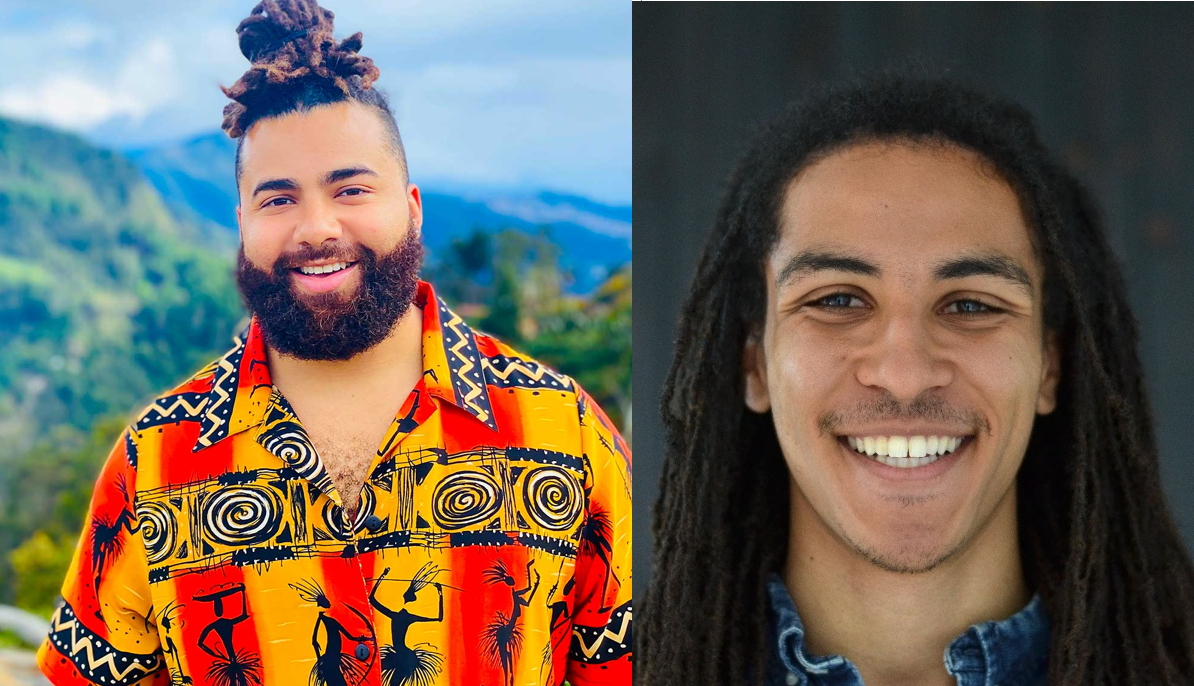Two Yale graduate students awarded Switzer Fellowship
Architecture student Josh Greene and law student AJ Hudson were recently awarded Switzer Fellowships for their work on environmental sustainability

Courtesy of Josh Green and Fran Silverman
The Switzer Fellowship, which recognizes individuals from New England and California for their work and leadership in the field of environmental improvement, was awarded to Yale graduate students AJ Hudson ENV ’19 JD ’23 and Josh Greene ARC ’23 this July.
Hudson and Greene are two of the 20 new fellows to join the Switzer Fellowship Network, which includes almost 700 individuals around the world. The fellowship includes a cash award of $15,000 toward academic studies and leadership training. Both Hudson and Greene have focused their work on the intersection between environmental stewardship and racial justice, albeit from different perspectives — Hudson through the law and Greene through architecture.
“It felt very validating and affirming to be one of the people to be selected for the cohort,” Hudson said.
This was not the first time that he applied for the Switzer Fellowship. While still a student at the Yale School of the Environment, Hudson was a finalist for the award; however, at the time, he did not make it past the interview stage.
Hudson believes that his victory this time around was the result of a new direction that he took in his work following his initial rejection from the cohort. After graduating from the School of the Environment, Hudson worked as an educator and taught climate workshops to low-income residents and local youth in the New York area of Sunset Park, Brooklyn.
“[The experience] really kind of united the different strands that I was working on and really gave me a new force and a new energy to really be working on community-centered responses to climate change,” Hudson said.
He credits much of his victory to his legal work at the Yale Law School, which has focused on the redefinition of environmental law and the creation of an environmental movement for marginalized people of color.
Hudson also expressed a desire for others to see his win as a lesson in learning from one’s failures. He said his biggest piece of advice is to try again even if you do not get it the first time.
“Reward can be deferred, and you just might not be at the right time in your career to win it,” Hudson added. “So not to take any losses as something personal, saying you’re not good enough, but instead to really take them as feedback, to understand how you could present yourself better or help communicate your vision better.”
Hudson also hopes to encourage more people from Yale to apply for the fellowship, particularly those from underrepresented backgrounds.
For Hudson, it is integral that those from the communities that will be most impacted by climate change and environmental degradation apply for the prize, as he believes they are going to be the “leaders of the future.”
“[Hudson] demonstrated his leadership capabilities while a student at YSE and I am very excited he has been awarded a Switzer Fellowship that will support his continued studies,” School of the Environment dean Indy Burke wrote in a statement to the News. “His work in the areas of environmental justice at YSE and in NYC at a local level and his efforts to inspire students to pursue climate action showcase his continuing ability to address the challenging issues of climate and equity.”
Yale School of Architecture Director of Communications AJ Artemel told the News it was “wonderful” to see Greene, a current architecture student, be recognized for environmental leadership, highlighting the importance of sustainable design.
Greene told the News that Switzer Fellows already had their first retreat, where they worked on research development and community building. He said the retreat was very productive and that he hopes to continue to feed into the fellowship network to become a mentor for other sustainability-minded designers and engineers.
“The importance [of the fellowship] cannot be understated because we have a lot of problems we have to collectively solve as an interdisciplinary workshop,” Greene told the News. “We can’t just be architects to solve the global crisis and we cannot just have lawyers. AJ and I aren’t in the Forestry School, which demonstrates that there’s an interdisciplinary approach to it which can help the environment drastically.”
The Switzer Fellowship program was established in 1986.







